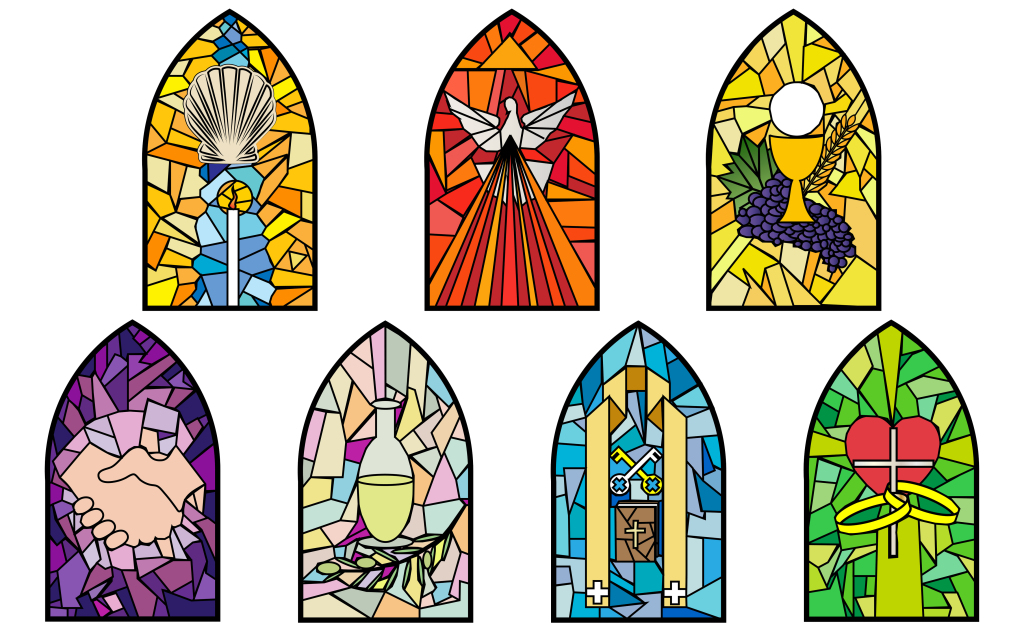The Seven Sacraments are fundamental rituals or ceremonies that are considered essential in the Catholic tradition for receiving God’s grace. Here they are listed and explained:
- Baptism: This is the sacrament by which a person is initiated into the Christian community. Through the pouring of water and the invocation of the Holy Trinity (Father, Son, and Holy Spirit), original sin is washed away, and the baptized person becomes a member of the Church. Baptism is seen as the gateway to the other sacraments.
- Confirmation: After baptism, Confirmation strengthens the individual’s relationship with Christ and empowers them with the gifts of the Holy Spirit. Through the anointing with chrism (blessed oil) by a bishop, the person is sealed with the gifts of the Holy Spirit to be a witness of Christ and to defend their faith.
- Eucharist (Holy Communion): This sacrament commemorates the Last Supper of Jesus with his disciples. During the Mass, bread and wine are consecrated and become the Body and Blood of Christ. Catholics believe that by partaking in the Eucharist, they receive the real presence of Jesus, nourishing their souls and uniting them more closely with Christ and the community.
- Reconciliation (Confession or Penance): This sacrament provides an opportunity for Catholics to seek forgiveness for sins committed after baptism. Through confessing their sins to a priest, receiving absolution, and performing penance, individuals are reconciled with God and the Church. This sacrament emphasizes the mercy and forgiveness of God.
- Anointing of the Sick (formerly known as Extreme Unction or Last Rites): Through this sacrament, those who are seriously ill or facing surgery are anointed with oil by a priest. The sacrament offers spiritual healing and strength, forgiveness of sins, and, if it is God’s will, physical healing. It is a source of grace and comfort for the sick.
- Holy Orders: This sacrament is conferred upon men who are called to serve the Church as deacons, priests, or bishops. Through the laying on of hands by a bishop, individuals receive a special grace to fulfill their roles in ministry and to serve the People of God. Each level of Holy Orders brings specific responsibilities and functions within the Church hierarchy.
- Matrimony (Marriage): This sacrament unites a man and a woman in a lifelong covenant of love and fidelity. With God’s grace, they become a symbol of Christ’s love for his Church. The couple exchanges vows before God and the Church, and the sacrament confers grace upon them to fulfill their marital duties and responsibilities.
In summary, the Seven Sacraments in Catholicism are Baptism, Confirmation, Eucharist, Reconciliation, Anointing of the Sick, Holy Orders, and Matrimony. Each sacrament serves as a visible sign of God’s invisible grace, strengthening believers’ relationship with God and the Church.
